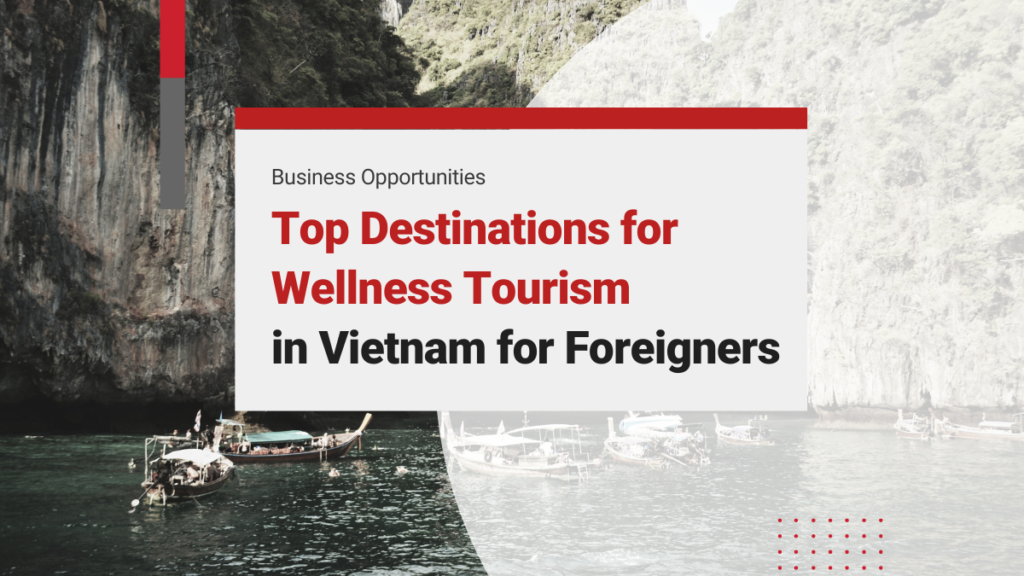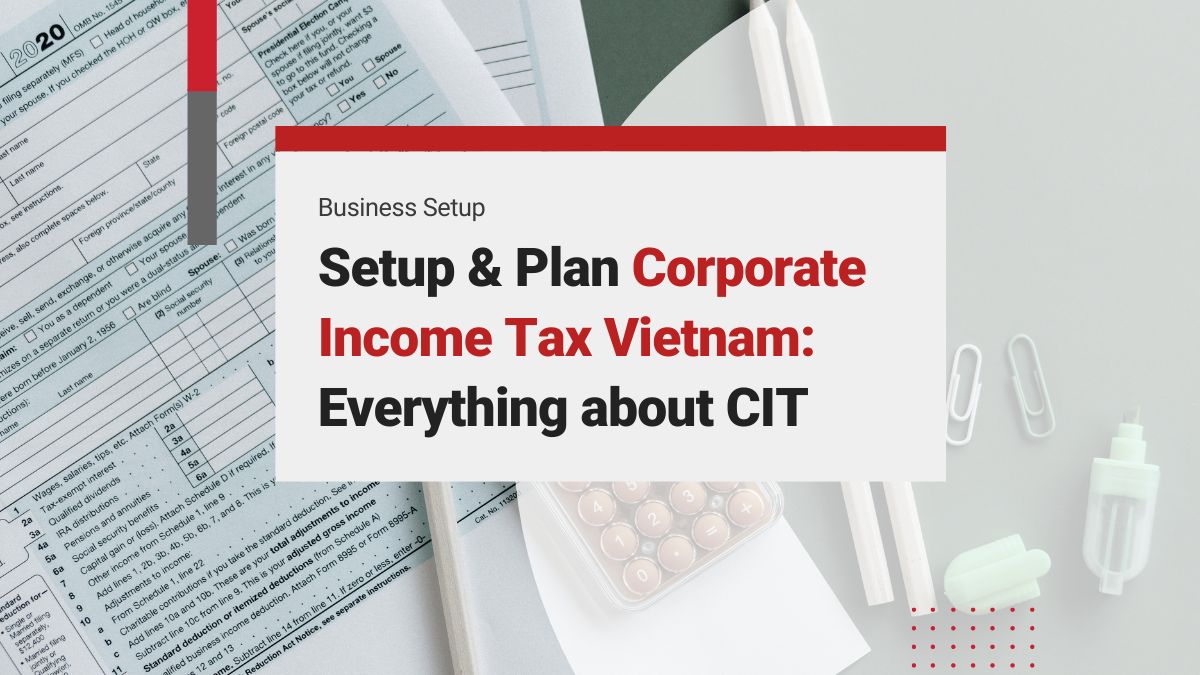Vietnam is quickly emerging as a rising star in the world of wellness tourism. With its breathtaking natural landscapes, deep-rooted cultural traditions, and affordable yet high-quality wellness services, the country offers travelers a truly unique path to relaxation and rejuvenation. With the country’s tourism sector expanding rapidly, many entrepreneurs are exploring company formation in Vietnam to tap into emerging opportunities in wellness and hospitality.
In this blog, we’ll explore what makes wellness tourism in Vietnam stand out – from serene luxury resorts and time-honored healing practices to the top destinations drawing wellness seekers from around the globe. Whether you’re planning your next retreat or exploring business opportunities, Vietnam’s wellness scene has something extraordinary to offer.
Wellness Tourism in Vietnam: A Growing Trend
Vietnam’s wellness tourism market is forecasted to grow at a compound annual growth rate (CAGR) of 9.30% from 2024 to 2032, with some industry reports projecting even higher growth rates between 12% and 15% annually. This upward trend reflects the global momentum in wellness-focused travel and the increasing demand for destinations that support physical, mental, and emotional well-being.
The country’s appeal lies in its diverse wellness offerings, from high-end resorts and spa retreats to immersive nature experiences and traditional healing therapies. Vietnam’s blend of cultural richness and authentic, holistic practices resonates strongly with wellness travelers. As more tourists prioritize well-being in their travel choices, Vietnam is poised to become a leading hub for wellness tourism in the region.
Read More: Why You Should Invest in Hospitality and Tourism Industry in Vietnam?
Key Factors Driving Wellness Tourism Growth in Vietnam
Several factors contribute to the growth of wellness tourism in Vietnam:
- The country’s rich natural landscapes
- Cultural heritage
- Increasing awareness of mental health issues
- Competitive pricing
These elements not only enhance the overall visitor experience but also strengthen Vietnam’s appeal as a top destination for holistic health, positioning it as a key player in the global wellness tourism industry.
Natural Landscapes and Cultural Heritage
Vietnam’s diverse natural settings create therapeutic environments ideal for relaxation and self-discovery. The 3,200-kilometer coastline features some of the world’s most beautiful beaches, enhancing its attractiveness as a wellness destination. Additionally, UNESCO-recognized sites and unique ethnic healing traditions offer authentic wellness experiences.
The combination of these stunning landscapes and rich cultural practices creates a unique wellness experience that resonates deeply with travelers.
Increasing Awareness of Mental Health
Increasing awareness of mental health issues in Vietnam is another factor driving wellness tourism. The 2023 Asia Mental Health Index reported that 35% of Vietnamese workers are at high risk of developing mental health issues, and an additional 47% are at moderate risk.
This growing interest in mental wellness has led to an increase in wellness retreats that emphasize emotional and spiritual well-being, including enhancing one’s personal well-being, mindfulness, and meditation retreats.
Competitive Pricing
Vietnam’s affordability in the wellness tourism sector makes it more attractive compared to neighboring Southeast Asian countries. Ranking 15th globally in price competitiveness, it appeals to budget-conscious travelers.
This cost-effectiveness, combined with high-quality wellness services, attracts both domestic and international wellness tourists, further boosting the wellness tourism market in Vietnam.
Read Related: Capitalizing on the Vietnam Hospitality Industry: How to Start a Hotel with Effective Cost Control
Popular Wellness Destinations in Vietnam
Vietnam features a variety of destinations for wellness tourists, each offering unique experiences. Popular spots include Phu Quoc Island, Lao Cai, and Ba Ria–Vung Tau.
These locations are known for their luxurious resorts, traditional healing practices, and stunning natural landscapes, making them ideal spots for wellness retreats.
Phu Quoc Island
Phu Quoc Island, known for its luxurious resorts and breathtaking natural beauty, stands out as a premier destination for wellness travelers. With serene beaches, lush greenery, and a tranquil atmosphere, it offers the perfect setting for relaxation and rejuvenation. Wellness retreats on the island often focus on yoga and meditation, helping visitors enhance mental well-being and relieve stress.
Lao Cai
Lao Cai offers a peaceful escape for wellness tourism, featuring traditional herbal baths and yoga sessions set against its stunning mountainous backdrop. The region’s natural beauty enhances the experience, creating a calming environment ideal for relaxation. Yoga retreats in Lao Cai are especially sought after, blending holistic wellness practices with the serene charm of the surrounding landscape.
Ba Ria – Vung Tau
Ba Ria–Vung Tau is gaining popularity for its natural hot springs and beautiful beaches, attracting wellness travelers and investors. The area’s emerging wellness retreats reflect the growing appeal of wellness tourism in the region.
The natural hot springs offer therapeutic relaxation and rejuvenation, making Ba Ria–Vung Tau a key destination for wellness tourism in Southeast Asia.
Read Related: Vietnam Travel Guide: Essential Travel Tips, Visa Requirements and Transportation Options
Wellness Services and Facilities
Vietnam provides a diverse range of wellness services and facilities to cater to various needs and preferences. These include spa treatments, yoga and meditation retreats, and indigenous healing practices, each contributing to holistic wellness experiences that attract travelers and enhance their overall well-being.
Spa Treatments and Massage Centers
Spa treatments and massage centers in Vietnam offer relaxing experiences with various techniques and therapies tailored for personal well-being. Phu Quoc Island is especially renowned for its upscale wellness resorts with rejuvenating spa treatments and serene meditation environments.
Popular treatments include bamboo massage, which relieves muscle tension, and thermal spring bathing at Alba Wellness Valley, which offers skin benefits and relaxation.
Unique treatments like Red Dao herbal baths and coffee ground body scrubs improve circulation and skin texture, offering holistic healing experiences.
Yoga and Meditation Retreats
Yoga and meditation retreats across Vietnam focus on stress reduction and overall health improvement through various practices and relaxing environments. Beachfront yoga sessions in Phu Quoc help participants connect with the tranquil surroundings, promoting mindfulness and peace.
Additionally, mineral-rich mud baths in Vietnam reduce inflammation, promote relaxation, enhance mental clarity, and contribute to stress relief.
Indigenous Healing Practices
Traditional Vietnamese healing practices use local herbs and rituals to align body and spirit, providing culturally rooted and transformative wellness experiences.
Lao Cai is noted for its variety of herbal baths using locally foraged medicinal plants for therapeutic benefits. These indigenous healing practices are gaining recognition in wellness tourism, offering visitors unique and authentic services that reflect Vietnam’s cultural heritage.
Start Your Wellness Tourism Venture in Vietnam – Everything You Need to Know!
Opportunities for Foreign Investors in Vietnam’s Wellness Tourism
Vietnam’s wellness tourism market offers significant opportunities for foreign investors due to its largely untapped potential. Between 2017 and 2024, the number of international tourists visiting Vietnam for health and wellness purposes increased by an average of 12% annually.
Moreover, the Vietnamese wellness tourism market is anticipated to grow at a compound annual growth rate (CAGR) of 9.3% from 2024 to 2032. This growth is supported by Vietnam’s rich natural resources, cultural diversity, and increasing demand for wellness experiences.
Investment Potential
Vietnam’s wellness tourism industry remains largely untapped, presenting a promising landscape for foreign investment. The underdeveloped market offers significant opportunities in hospitality, wellness facilities, and real estate.
Infrastructure Development
Infrastructure development plays a key role in driving the growth of wellness tourism in Vietnam. On Phu Quoc Island, major upgrades—ranging from enhanced transportation networks to expanded wellness facilities—are helping to support the sector’s rapid expansion. Projects like the seaport are especially important, making it easier for wellness tourists to access the island and enjoy a smooth, enriching experience from arrival to retreat.
Collaboration with Local Businesses
Collaborating with local enterprises boosts the authenticity and quality of wellness tourism in Vietnam. Foreign investors are partnering with local entities to develop premium retreats that incorporate traditional practices, benefiting both the local economy and cultural preservation.
Read Related: How to Set Up a Vietnam Travel Agency: Key Steps and Lessons from the Best Travel Agencies in Vietnam
Ancillary Sectors Benefiting from Wellness Tourism
Wellness tourism positively impacts various ancillary sectors, creating opportunities for revenue generation and job creation. Sectors like organic food, wellness technology, and fitness products are capitalizing on this growth, leading to sustainable economic development.
Organic Food and Healthy Eating
The rise in wellness tourism has heightened the demand for organic food options as travelers seek healthier dietary choices. Health-conscious dining options are growing in popularity, driving the expansion of organic food offerings in various destinations.
Personalized Wellness Tech
Personalized wellness technology enhances guest experiences by offering tailored wellness programs and real-time health monitoring. Examples include apps that customize fitness routines, wearable health trackers, and AI-driven health assessments in wellness facilities. As technology evolves, wellness tourism in Vietnam will likely see more innovative solutions promoting individualized health and wellness experiences.
Fitness and Wellness Products
The market for fitness and wellness products in Vietnam is expanding rapidly due to the rising popularity of holistic health solutions among travelers. This growth, driven by integrating wellness into travel experiences, makes Vietnam an attractive destination for health-conscious visitors.
Challenges Facing Wellness Tourism in Vietnam
Despite its potential, Vietnam’s wellness tourism sector faces several challenges, including labor shortages, competition from neighboring countries, and regulatory and quality control issues.
Labor Shortages
Vietnam’s tourism sector is grappling with a major labor shortage, needing nearly 40,000 new workers annually while training only about 15,000. This gap threatens service quality, especially in wellness tourism, where unregulated practices due to a lack of skilled staff could impact the country’s reputation and visitor satisfaction.
Competition from Neighboring Countries
Vietnam faces significant competition in wellness tourism from neighboring countries like Thailand and Malaysia, both with well-established wellness frameworks. Thailand’s reputation for high-quality wellness treatments and luxurious spa experiences, along with Malaysia’s effective marketing strategies, make them preferred destinations.
Regulatory and Quality Control
There is a pressing need for standardized regulations in Vietnam’s wellness tourism to enhance service quality and ensure consumer safety. The lack of a structured regulatory framework raises concerns about service quality.
How InCorp Vietnam Can Help?
InCorp Vietnam offers essential support for businesses looking to enter and thrive in Vietnam’s expanding wellness tourism market. Their expertise in local regulations and business setup processes helps streamline entry, ensuring compliance and reducing startup challenges. With their guidance, investors can identify promising opportunities and navigate common hurdles such as staffing shortages and market competition.
By partnering with InCorp Vietnam, businesses can tap into the country’s rich natural landscapes, cultural heritage, and growing demand for wellness services. This strategic support not only enhances the chance of success but also allows businesses to contribute meaningfully to Vietnam’s dynamic and fast-growing wellness tourism industry.

clients worldwide

professional staff

incorporated entities in 10 years

compliance transactions yearly
Learn the Right Setup for Business
Expansion in the Vietnam
Frequently Asked Questions
What are the key factors driving the growth of wellness tourism in Vietnam?
- The growth of wellness tourism in Vietnam is primarily driven by its stunning natural landscapes, rich cultural heritage, rising mental health awareness, and competitive pricing. These factors create a compelling environment for travelers seeking wellness experiences.
Which are the most popular wellness destinations in Vietnam?
- Vietnam's most popular wellness destinations include Phu Quoc Island, Lao Cai, and Ba Ria–Vung Tau, offering serene environments for relaxation and rejuvenation.
What types of wellness services and facilities are available in Vietnam?
- Vietnam provides an extensive array of wellness services such as spa treatments, yoga and meditation retreats, and traditional healing practices, catering to various holistic health needs. Consider exploring these options for a rejuvenating experience.
What opportunities exist for foreign investors in Vietnam’s wellness tourism sector?
- Foreign investors can capitalize on Vietnam's wellness tourism sector through investment potential, infrastructure development, and collaboration with local businesses. These avenues present a conducive environment for growth and profitability in this emerging market.






